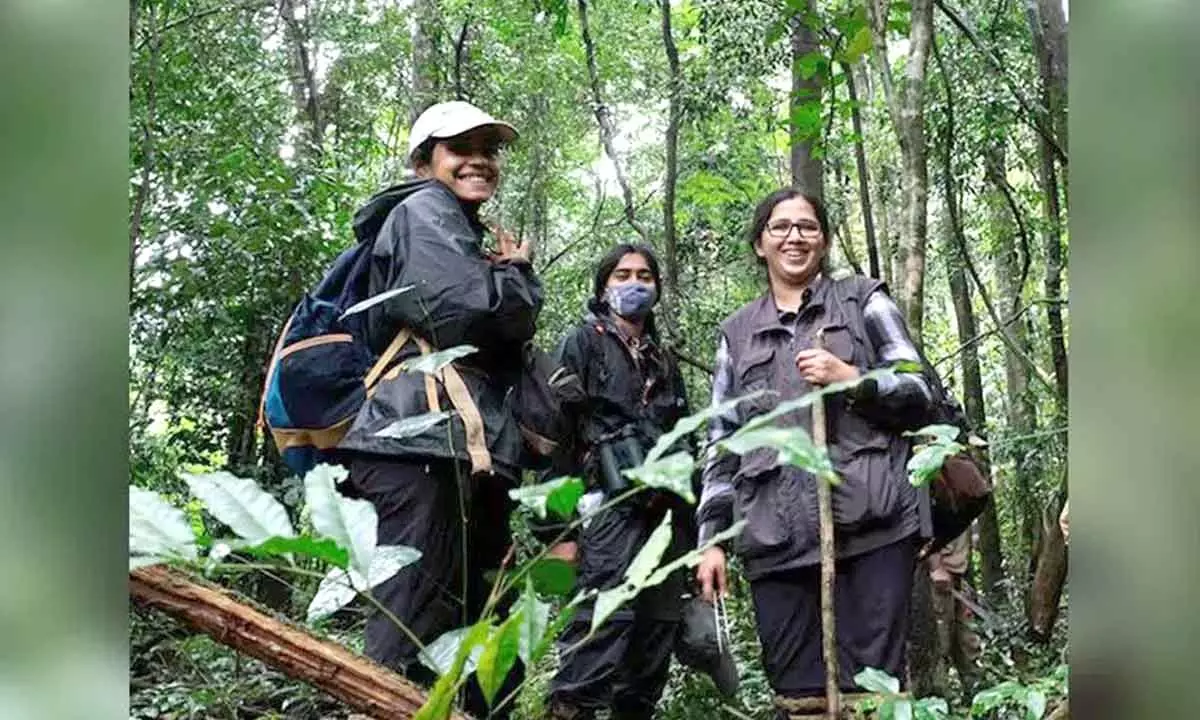Hyderabad: CCMB researchers predict genetic diversity in an ancient arthropod group

From L to R: Bharti Dharapuram, Pooja Pawar, Jahnavi Joshi
- Dr Jahnavi Joshi’s group at CCMB leads a global study on centipedes’ genetic diversity
- Species traits and geographic factors explain over 25 percent of genetic variation
- The research offers insights into the relationship between species traits and population structure
Hyderabad: A global study led by Dr.Jahnavi Joshi’s group at CSIR-Centre for Cellular and Molecular Biology (CCMB) reveals that species traits and geographic factors explain over 25 percent of the variation in genetic diversity in centipedes, a soil invertebrate group with 420 million years of evolutionary history.
Genetic diversity, which measures differences in DNA sequences among individuals of a species, plays a crucial role in how organisms respond to environmental changes and influences species diversity.
Previous studies on the drivers of genetic diversity have been limited to a few well-studied animal groups with readily available genetic sequence information. In this study, the researchers focused on centipedes, utilizing DNA sequences and traits such as body size, vision, and parental care, along with distribution data obtained from museum databases and published literature. Centipedes, being ancient arthropods with diverse species traits and biogeographic histories, offered a unique opportunity to investigate the factors influencing genetic diversity in non-traditional laboratory models.
The study findings align with previous research, suggesting that common underlying processes likely shape genetic diversity across different animal groups, despite their distinct evolutionary histories.
Dr. Bharti Dharapuram, a postdoctoral researcher and one of the study's authors, emphasizes that this study provides hypotheses regarding the relationship between species traits and population structure. These hypotheses can be further tested on a regional scale, particularly within the Indian subcontinent.
The research conducted by Dr.Jahnavi Joshi’s group sheds light on the factors driving genetic diversity in centipedes and paves the way for future investigations into the interplay between species traits and population structure at a more localised level.
















